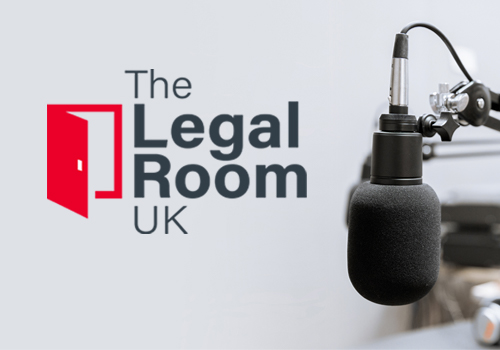Child Law Solicitors
We are child-focused lawyers, who place the best interests of the child at the centre of our advice. Our advice draws on years of experience, and we offer practical solutions that aim to minimise distress caused to children.
Child Law
Parental responsibility is the legal term used for the obligations and rights parents have in respect of their child. You and your former partner are likely to share parental responsibility for the child, whatever the living arrangements. This should mean you are both involved in all major decisions such as those about the child’s health, education, and religion.
Mothers automatically have parental responsibility for their child. A father has parental responsibility if he:
- Is married to the child’s mother
- Is named as the child’s father on their birth certificate
- Has obtained a court order which grants him parental responsibility
- Has entered into a parental responsibility agreement stating that he has parental responsibility
In most circumstances, same-sex partners will both have parental responsibility if they were married or civil partners at the time of the treatment which lead to conception. For same-sex partners who aren’t married or civil partners, the second parent can obtain parental responsibility by either applying for parental responsibility, or by becoming a spouse or civil partner of the other parent and making a parental responsibility agreement.
Child Arrangements
Some parents are able to agree child arrangements without the assistance of lawyers. If you and your former partner agree the arrangements for the child, you may wish to record your agreement in a Parenting Plan.
If you and your former partner cannot agree what the child arrangements should be, we may suggest that you both attend mediation. Mediation is often the most cost-effective option.
Alternatively, it may be more appropriate for us to liaise with your former partner, or their lawyer, on your behalf, and advance your proposals in the hope of reaching an agreement.
In the event that you and your former partner cannot reach an agreement between you, it may be necessary to ask the court for assistance. We can assist you with navigating the court process, handle the day-to-day running of your case, and if appropriate, arrange for you to be represented in court by a barrister.
Child Maintenance
For separated parents, one common cause of anxiety and frustration is a situation where they are the primary carer for their child and the other parent is not making fair financial contributions. We can help to direct you to the appropriate agency and also advise you on whether you will be able to claim any further financial support.
The Child Maintenance Process
For most cases, the Child Maintenance Service (or CMS) should be a parent’s first port of call when they are seeking an assessment of the amount of child maintenance from their ex-partner or they are seeking to enforce payment.
The CMS calculator can be found here.
You can use this link to work out what your ex-partner should be paying you. In most cases, you can then speak to them (or they may approach you) to agree a regular standing order / direct debit.
In certain circumstances, it may be necessary to ask the CMS to collect the payments for you, and this is usually the case when the paying parent is not making payments, not paying the correct amount, or not paying on time. The CMS will ‘collect’ the payments from your ex partners directly. Where they are employed the CMS can deduct payments directly from their salary.
At a glance, Child Maintenance payments are calculated as follows:
On the basic rate (applies to parents earning £200 – £800 gross per week), if you’re paying for:
- One child – you’ll pay 12% of your gross weekly income
- Two children – you’ll pay 16% of your gross weekly income
- Three or more children – you’ll pay 19% of your gross weekly income
This does of course depend on the amount of time that the children spend with you and payments will reduce proportionately depending on how many days per week the children spend with the paying parent.
If your child is with the paying parent between:
- 52 and 103 nights: child maintenance is reduced by 1/7th for each child
- 104 and 155 nights: child maintenance is reduced by 2/7th for each child
- 156 and 174 nights: child maintenance is reduced by 3/7th for each child
- 175 nights or more nights: child maintenance is reduced by 50%, plus an extra £7 a week reduction for each child
When a paying parent is also responsible for maintaining another child who lives with them, this will be taken into account in the CMS calculation as well.
The CMS will reduce the amount of weekly income that it takes into account. For example, if the paying parent is paying for:
- One other child, their weekly income will be reduced by 11%
- Two other children, their weekly income will be reduced by 14%
- Three or more other children, their weekly income will be reduced by 16%
Time with your child(ren)
It is extremely rare for one parent to have no right to see their child post-separation. As a general principle, the court considers that it is in a child’s best interests to spend regular time with both parents. The amount of time depends on the particular circumstances of the family, which may change over time. Depending on their age and maturity, the child’s wishes and feelings are usually taken into account.
We can assist you if:
- You have separated from your partner and would like advice as to the options for you and your child post-separation;
- Your former partner is not supportive of the time you spend with your child;
- You are not supportive of the time your former partner spends with your child, perhaps due to serious welfare concerns, and you would like advice as to your options; or
- Your former partner cannot agree where and with whom your child should live, or you cannot agree on certain major decisions in the child’s life, for example, education or health related decisions.
Emergency & Preventative action
A ‘Prohibited Steps Order’ is an order which means that a person must have the court’s consent before doing something set out in the order. It is used by one parent to stop another parent from making certain decisions about their child’s upbringing.
A Prohibited Steps Order could prevent:
- One parent from changing a child’s school or nursery
- Changing the child’s last name
- Relocating the child to a different country
If you fear that your child is at risk of being removed from the country by your former partner, it is important that you seek advice as quickly as possible. We can assist you with applying for a Prohibited Steps Order which prevents the removal of a child from England and Wales.
What is the process?
Before issuing an application to the court, a prospective applicant must attend a MIAM and invite your former partner to attend. This will be relevant unless an exemption applies. At the MIAM, a mediator will discuss the dispute with each party and assess whether other forms of dispute resolution (such as family mediation, collaborative law or arbitration) can assist in resolving the dispute.
If a party refuses to attend the MIAM or an exemption applies to the requirement to attend a MIAM then an application to the court can be made.
An application to the court is made by completing Form C100 and lodging it at your local family court. On the Form C100, the Applicant will be required to tick a box confirming that a MIAM has been attended or explain why an exemption applies. The Form C100 should be accompanied by the court fee of £215.
Once the court has received your application, the papers will be ‘issued’ by the court and placed before a nominated legal adviser or a nominated district judge for their consideration. The court will then seal and date the application and fix a 30-minute directions hearing (known as a FHDRA). The court will serve the application by sending the following documents to the respondent 14 days before the FHDRA.
Grandparent’s Rights
A specific issue order is an order from the court giving directions for determining a specific question. A specific issue order is used to look at a specific question about how the child is being brought up, for example what school they go to or if they should have a religious education.
In private cases, the courts have the power to provide open or specific orders for the welfare of the child and will take several considerations into account as specified in section 1 of the Children Act 1989. These considerations are:
the wishes and feelings of the child (considering their age and understanding);
their physical, emotional and/or educational needs;
the likely effect on them of any change in their circumstances;
their age, sex, background and any characteristics which the court considers relevant;
any harm which they have suffered or are at risk of suffering; and
how capable each of their parents (or any other relevant person) is of meeting their needs.
The process
Before issuing an application to the court, a prospective applicant must attend a MIAM and invite your former partner to attend. This will be relevant unless an exemption applies. At the MIAM, a mediator will discuss the dispute with each party and assess whether other forms of dispute resolution (such as family mediation, collaborative law or arbitration) can assist in resolving the dispute.
If a party refuses to attend the MIAM or an exemption applies to the requirement to attend a MIAM then an application to the court can be made.
An application to the court is made by completing Form C100 and lodging it at your local family court. On the Form C100, the Applicant will be required to tick a box confirming that a MIAM has been attended or explain why an exemption applies. The Form C100 should be accompanied by the court fee of £215.
Supplemental Form C1A must be completed where it is alleged that the child has suffered or is at risk of suffering from domestic abuse or violence. This can include damage to health (physical or mental) and development (physical, intellectual, emotional, social or behavioural) including damage suffered from seeing or hearing the ill treatment of another.
Once the court has received your application, the papers will be issued by the court and placed before a nominated legal adviser or a nominated district judge for their consideration. The court will then seal and date the application and fix a 30-minute directions hearing (known as a FHDRA). The court will serve the application and send the relevant documents to the respondent 14 days before the FHDRA.
Parental Alienation
Parental Alienation is where a child expresses hostile feelings, unwarranted fear or disrespect towards one of their parents, commonly towards the parent with whom they do not live following the separation of their parents. In those circumstances, the child may resist or refuse to spend time with that parent.
With Parental Alienation a child’s feelings are often influenced by the parent with whom they live, who subconsciously or consciously alienates and manipulates the child against their other parent, through maliciousness or perhaps more subtle behaviour. Child manipulation by one parent can result in the child becoming alienated from their other parent.
Relocating with your child
We understand that making important decisions that affect your children’s lives are never easy, and sometimes, you and your co-parent will not see things the same way.
Where the law is concerned, the welfare of a child and the needs of a child are paramount. Whether you are:
- Concerned about your ability to care for your child in a country where you have little social connections or support networks
- You feel you would be far better able to meet your child’s needs in the familiarity of a different country (usually your ‘home’ country),
- You feel that another country would offer you a better lifestyle
- You have new and better employment opportunities abroad
We can help you make an application to the court where your co-parent does not understand or agree to your reasoning. These are known as ‘Leave to Remove’ applications and essentially allow one parent the right to permanently relocate abroad with their child.
If you find yourself in this situation, it is vitally important that you take legal advice at the earliest opportunity, so that you can understand how best to approach the issue. We will present you with your options and you should rest assured that we carefully tailor our advice to the situation at hand, recommending you consider mediation or other methods of dispute resolution where this is appropriate and likely to be helpful. If not, then our team are experienced and adept at making court applications and we will take all necessary steps to progress your matter.
Applications for leave to remove
The process for applying for Leave to Remove can vary depending on what measures are already in place in respect of your child’s care.
You should note that where there is a ‘Child Arrangements Order’ in place and it states who the child is to live with, then that person can take the child abroad for up to 28 days without needing permission from the court or the other parent. If they wish to take the child abroad for longer than this (anything from 29 days to permanently), they will need either the written permission of the other parent, or the permission of the court.
Where the other parent is not happy to provide written permission, then the court can make an order under one of two pieced of legislation:
Put simply, where there is an existing Child Arrangements Order in place regulating where a child is to live, then the application should be made under Section 13 of the Children Act 1989.
Where this is not in place, then the application should be made under Section 8 of the Children Act 1989 and the court should be asked to make a ‘Specific Issue Order’. The ‘Specific Issue’ that the judge would be asked to rule on is whether or not the applicant parent should be allowed to permanently relocate with the child to a different country.
Specific Issue Orders
A specific issue order is an order from the court giving directions for determining a specific question. A specific issue order is used to look at a specific question about how the child is being brought up, for example what school they go to or if they should have a religious education.
In private cases, the courts have the power to provide open or specific orders for the welfare of the child and will take several considerations into account as specified in section 1 of the Children Act 1989. These considerations are:
- the wishes and feelings of the child (considering their age and understanding);
- their physical, emotional and/or educational needs
- the likely effect on them of any change in their circumstances
- their age, sex, background and any characteristics which the court considers relevant
- any harm which they have suffered or are at risk of suffering
- how capable each of their parents (or any other relevant person) is of meeting their needs.
What’s the process?
Before issuing an application to the court, a prospective applicant must attend a MIAM and invite your former partner to attend. This will be relevant unless an exemption applies. At the MIAM, a mediator will discuss the dispute with each party and assess whether other forms of dispute resolution (such as family mediation, collaborative law or arbitration) can assist in resolving the dispute.
If a party refuses to attend the MIAM or an exemption applies to the requirement to attend a MIAM then an application to the court can be made.
An application to the court is made by completing Form C100 and lodging it at your local family court. On the Form C100, the Applicant will be required to tick a box confirming that a MIAM has been attended or explain why an exemption applies. The Form C100 should be accompanied by the court fee of £215.
Supplemental Form C1A must be completed where it is alleged that the child has suffered or is at risk of suffering from domestic abuse or violence. This can include damage to health (physical or mental) and development (physical, intellectual, emotional, social or behavioural) including damage suffered from seeing or hearing the ill treatment of another.
Once the court has received your application, the papers will be issued by the court and placed before a nominated legal adviser or a nominated district judge for their consideration. The court will then seal and date the application and fix a 30-minute directions hearing (known as a FHDRA). The court will serve the application and send the relevant documents to the respondent 14 days before the FHDRA.
Child Arrangements
Some parents are able to agree child arrangements without the assistance of lawyers. If you and your former partner agree the arrangements for the child, you may wish to record your agreement in a Parenting Plan.
If you and your former partner cannot agree what the child arrangements should be, we may suggest that you both attend mediation. Mediation is often the most cost-effective option.
Alternatively, it may be more appropriate for us to liaise with your former partner, or their lawyer, on your behalf, and advance your proposals in the hope of reaching an agreement.
In the event that you and your former partner cannot reach an agreement between you, it may be necessary to ask the court for assistance. We can assist you with navigating the court process, handle the day-to-day running of your case, and if appropriate, arrange for you to be represented in court by a barrister.
Child Maintenance Service
For separated parents, one common cause of anxiety and frustration is a situation where they are the primary carer for their child and the other parent is not making fair financial contributions. We can help to direct you to the appropriate agency and also advise you on whether you will be able to claim any further financial support.
The Child Maintenance Process
For most cases, the Child Maintenance Service (or CMS) should be a parent’s first port of call when they are seeking an assessment of the amount of child maintenance from their ex-partner or they are seeking to enforce payment.
The CMS calculator can be found here.
You can use this link to work out what your ex-partner should be paying you. In most cases, you can then speak to them (or they may approach you) to agree a regular standing order / direct debit.
In certain circumstances, it may be necessary to ask the CMS to collect the payments for you, and this is usually the case when the paying parent is not making payments, not paying the correct amount, or not paying on time. The CMS will ‘collect’ the payments from your ex partners directly. Where they are employed the CMS can deduct payments directly from their salary.
At a glance, Child Maintenance payments are calculated as follows:
On the basic rate (applies to parents earning £200 – £800 gross per week), if you’re paying for:
- One child – you’ll pay 12% of your gross weekly income
- Two children – you’ll pay 16% of your gross weekly income
- Three or more children – you’ll pay 19% of your gross weekly income
This does of course depend on the amount of time that the children spend with you and payments will reduce proportionately depending on how many days per week the children spend with the paying parent.
If your child is with the paying parent between:
- 52 and 103 nights: child maintenance is reduced by 1/7th for each child
- 104 and 155 nights: child maintenance is reduced by 2/7th for each child
- 156 and 174 nights: child maintenance is reduced by 3/7th for each child
- 175 nights or more nights: child maintenance is reduced by 50%, plus an extra £7 a week reduction for each child
When a paying parent is also responsible for maintaining another child who lives with them, this will be taken into account in the CMS calculation as well.
The CMS will reduce the amount of weekly income that it takes into account. For example, if the paying parent is paying for:
- One other child, their weekly income will be reduced by 11%
- Two other children, their weekly income will be reduced by 14%
- Three or more other children, their weekly income will be reduced by 16%
Time with your child(ren)
It is extremely rare for one parent to have no right to see their child post-separation. As a general principle, the court considers that it is in a child’s best interests to spend regular time with both parents. The amount of time depends on the particular circumstances of the family, which may change over time. Depending on their age and maturity, the child’s wishes and feelings are usually taken into account.
We can assist you if:
- You have separated from your partner and would like advice as to the options for you and your child post-separation;
- Your former partner is not supportive of the time you spend with your child;
- You are not supportive of the time your former partner spends with your child, perhaps due to serious welfare concerns, and you would like advice as to your options; or
- Your former partner cannot agree where and with whom your child should live, or you cannot agree on certain major decisions in the child’s life, for example, education or health related decisions.
Emergency & Preventative action
A ‘Prohibited Steps Order’ is an order which means that a person must have the court’s consent before doing something set out in the order. It is used by one parent to stop another parent from making certain decisions about their child’s upbringing.
A Prohibited Steps Order could prevent:
- One parent from changing a child’s school or nursery
- Changing the child’s last name
- Relocating the child to a different country
If you fear that your child is at risk of being removed from the country by your former partner, it is important that you seek advice as quickly as possible. We can assist you with applying for a Prohibited Steps Order which prevents the removal of a child from England and Wales.
What is the process?
Before issuing an application to the court, a prospective applicant must attend a MIAM and invite your former partner to attend. This will be relevant unless an exemption applies. At the MIAM, a mediator will discuss the dispute with each party and assess whether other forms of dispute resolution (such as family mediation, collaborative law or arbitration) can assist in resolving the dispute.
If a party refuses to attend the MIAM or an exemption applies to the requirement to attend a MIAM then an application to the court can be made.
An application to the court is made by completing Form C100 and lodging it at your local family court. On the Form C100, the Applicant will be required to tick a box confirming that a MIAM has been attended or explain why an exemption applies. The Form C100 should be accompanied by the court fee of £215.
Once the court has received your application, the papers will be ‘issued’ by the court and placed before a nominated legal adviser or a nominated district judge for their consideration. The court will then seal and date the application and fix a 30-minute directions hearing (known as a FHDRA). The court will serve the application by sending the following documents to the respondent 14 days before the FHDRA.
Grandparent’s Rights
A specific issue order is an order from the court giving directions for determining a specific question. A specific issue order is used to look at a specific question about how the child is being brought up, for example what school they go to or if they should have a religious education.
In private cases, the courts have the power to provide open or specific orders for the welfare of the child and will take several considerations into account as specified in section 1 of the Children Act 1989. These considerations are:
the wishes and feelings of the child (considering their age and understanding);
their physical, emotional and/or educational needs;
the likely effect on them of any change in their circumstances;
their age, sex, background and any characteristics which the court considers relevant;
any harm which they have suffered or are at risk of suffering; and
how capable each of their parents (or any other relevant person) is of meeting their needs.
The Process
Before issuing an application to the court, a prospective applicant must attend a MIAM and invite your former partner to attend. This will be relevant unless an exemption applies. At the MIAM, a mediator will discuss the dispute with each party and assess whether other forms of dispute resolution (such as family mediation, collaborative law or arbitration) can assist in resolving the dispute.
If a party refuses to attend the MIAM or an exemption applies to the requirement to attend a MIAM then an application to the court can be made.
An application to the court is made by completing Form C100 and lodging it at your local family court. On the Form C100, the Applicant will be required to tick a box confirming that a MIAM has been attended or explain why an exemption applies. The Form C100 should be accompanied by the court fee of £215.
Supplemental Form C1A must be completed where it is alleged that the child has suffered or is at risk of suffering from domestic abuse or violence. This can include damage to health (physical or mental) and development (physical, intellectual, emotional, social or behavioural) including damage suffered from seeing or hearing the ill treatment of another.
Once the court has received your application, the papers will be issued by the court and placed before a nominated legal adviser or a nominated district judge for their consideration. The court will then seal and date the application and fix a 30-minute directions hearing (known as a FHDRA). The court will serve the application and send the relevant documents to the respondent 14 days before the FHDRA.
Parental Alienation
Parental Alienation is where a child expresses hostile feelings, unwarranted fear or disrespect towards one of their parents, commonly towards the parent with whom they do not live following the separation of their parents. In those circumstances, the child may resist or refuse to spend time with that parent.
With Parental Alienation a child’s feelings are often influenced by the parent with whom they live, who subconsciously or consciously alienates and manipulates the child against their other parent, through maliciousness or perhaps more subtle behaviour. Child manipulation by one parent can result in the child becoming alienated from their other parent.
Relocating with your child
We understand that making important decisions that affect your children’s lives are never easy, and sometimes, you and your co-parent will not see things the same way.
Where the law is concerned, the welfare of a child and the needs of a child are paramount. Whether you are:
- Concerned about your ability to care for your child in a country where you have little social connections or support networks
- You feel you would be far better able to meet your child’s needs in the familiarity of a different country (usually your ‘home’ country),
- You feel that another country would offer you a better lifestyle
- You have new and better employment opportunities abroad
We can help you make an application to the court where your co-parent does not understand or agree to your reasoning. These are known as ‘Leave to Remove’ applications and essentially allow one parent the right to permanently relocate abroad with their child.
If you find yourself in this situation, it is vitally important that you take legal advice at the earliest opportunity, so that you can understand how best to approach the issue. We will present you with your options and you should rest assured that we carefully tailor our advice to the situation at hand, recommending you consider mediation or other methods of dispute resolution where this is appropriate and likely to be helpful. If not, then our team are experienced and adept at making court applications and we will take all necessary steps to progress your matter.
Applications for leave to remove
The process for applying for Leave to Remove can vary depending on what measures are already in place in respect of your child’s care.
You should note that where there is a ‘Child Arrangements Order’ in place and it states who the child is to live with, then that person can take the child abroad for up to 28 days without needing permission from the court or the other parent. If they wish to take the child abroad for longer than this (anything from 29 days to permanently), they will need either the written permission of the other parent, or the permission of the court.
Where the other parent is not happy to provide written permission, then the court can make an order under one of two pieced of legislation:
Put simply, where there is an existing Child Arrangements Order in place regulating where a child is to live, then the application should be made under Section 13 of the Children Act 1989.
Where this is not in place, then the application should be made under Section 8 of the Children Act 1989 and the court should be asked to make a ‘Specific Issue Order’. The ‘Specific Issue’ that the judge would be asked to rule on is whether or not the applicant parent should be allowed to permanently relocate with the child to a different country.
Specific Issue Orders
A specific issue order is an order from the court giving directions for determining a specific question. A specific issue order is used to look at a specific question about how the child is being brought up, for example what school they go to or if they should have a religious education.
In private cases, the courts have the power to provide open or specific orders for the welfare of the child and will take several considerations into account as specified in section 1 of the Children Act 1989. These considerations are:
the wishes and feelings of the child (considering their age and understanding);
their physical, emotional and/or educational needs
the likely effect on them of any change in their circumstances
their age, sex, background and any characteristics which the court considers relevant
any harm which they have suffered or are at risk of suffering
how capable each of their parents (or any other relevant person) is of meeting their needs.
What’s the process?
Before issuing an application to the court, a prospective applicant must attend a MIAM and invite your former partner to attend. This will be relevant unless an exemption applies. At the MIAM, a mediator will discuss the dispute with each party and assess whether other forms of dispute resolution (such as family mediation, collaborative law or arbitration) can assist in resolving the dispute.
If a party refuses to attend the MIAM or an exemption applies to the requirement to attend a MIAM then an application to the court can be made.
An application to the court is made by completing Form C100 and lodging it at your local family court. On the Form C100, the Applicant will be required to tick a box confirming that a MIAM has been attended or explain why an exemption applies. The Form C100 should be accompanied by the court fee of £215.
Supplemental Form C1A must be completed where it is alleged that the child has suffered or is at risk of suffering from domestic abuse or violence. This can include damage to health (physical or mental) and development (physical, intellectual, emotional, social or behavioural) including damage suffered from seeing or hearing the ill treatment of another.
Once the court has received your application, the papers will be issued by the court and placed before a nominated legal adviser or a nominated district judge for their consideration. The court will then seal and date the application and fix a 30-minute directions hearing (known as a FHDRA). The court will serve the application and send the relevant documents to the respondent 14 days before the FHDRA.
FAQs
Can family court decisions be appealed?
In most cases, you will have to ask a judge’s permission to appeal.
The judge will only grant this permission if they think the appeal has a real chance of succeeding or in family proceedings, there is some other valid reason for your appeal to be heard. If you are considering making an appeal, we would recommend that you seek independent legal advice from a family law solicitor.
Can I change my child’s surname?
If both parents agree to the change of their child’s name, then they can complete a deed poll: https://www.gov.uk/change-name-deed-poll/change-a-childs-name
If one parent opposes changing their child’s name, the other can seek permission from the court. We would recommend that you seek independent legal advice from a family law solicitor before making any such court application.
Can I take my children on holiday?
If a parent has a Child Arrangements Order that provides for their children to live with them, they can take their child/children out of England (or Wales if that is where they live) for up to 28 days without the consent of the other parent unless there is a Prohibited Steps Order or Specific Issue Order requiring them not to do so.
If there is no Child Arrangements Order, then the consent of every person with parental responsibility will be needed before one parent can travel abroad with their child/children.
Can the family court drug test you?
Yes. The family court can order one parent to undergo drug and/or alcohol testing in order to prove that they are sober or clean.
Do grandparents have the right to spend time with their grandchildren?
Grandparents do not have an automatic to spend time with their grandchildren, however, they can apply to the court for an order under the Children Act 1989. if they are being denied access. If you are considering making such an application, we would recommended that you seek independent legal advice from a family law solicitor first.
What is the difference between a barrister and a solicitor?
A solicitor will undertake most of their work outside of court and provide advice, handle paperwork, and negotiate settlements for clients. They directly interact with clients, gather evidence, and represent clients in court if necessary.
Barristers specialise in courtroom advocacy and are typically instructed by solicitors to present cases in court and to represent clients during hearings and trials.
Whilst solicitors handle overall case management, barristers focus specifically on courtroom representation.
What if my former partner is a very high earner?
If your former partner earns more than maximum assessment that the CMS can make (in excess of £3,000 gross per week, or £156,000 per annum), you may be able to apply to the court for ‘top-up’ maintenance under Schedule 1 of the Children Act 1989.
Who are Cafcass?
Cafcass stands for “Children and Family Court Advisory and Support Service”.
Cafcass is an organisation that represents a child’s best interests in family law court proceedings. They provide reports and recommendations to assist judges in making decisions about child arrangements, and other issues affecting children.
Legal Insight
Meet the Team
Related expertise
Best Law Firms 2024
Herrington Carmichael has once again been named in the Times Best Law Firms. We were first listed in 2023 and have once again made the Best Law Firms list for 2024.












